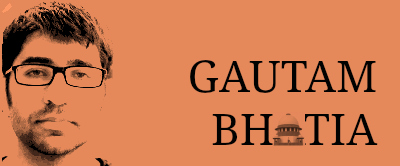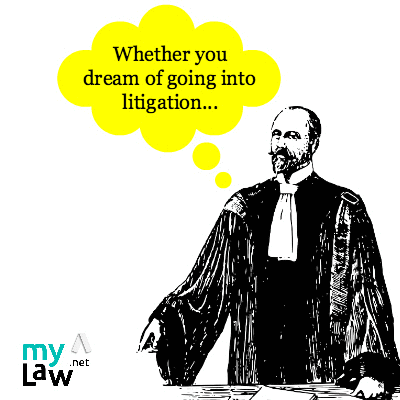 This week, in Centre for Public Interest Litigation v. Union of India, a Constitution Bench of the Supreme Court struck down Section 6A of the Delhi Special Police Establishment Act, 1946 (“DSPE Act”). The Section, which had been inserted into the enactment through a 2003 amendment (with a tortuous history of its own), prohibited inquiries or investigations of offences alleged to have been committed under the Prevention of Corruption Act, 1988 without the prior approval of the Central Government, if such allegations were made – inter alia – against certain senior government officials (Joint Secretary and above), and officials appointed in government corporations. Section 6A thus created two classes of officials, one of which could be investigated for corruption without prior sanction and the other, which could not. This classification was challenged under Article 14 of the Constitution. The Supreme Court upheld the challenge.
This week, in Centre for Public Interest Litigation v. Union of India, a Constitution Bench of the Supreme Court struck down Section 6A of the Delhi Special Police Establishment Act, 1946 (“DSPE Act”). The Section, which had been inserted into the enactment through a 2003 amendment (with a tortuous history of its own), prohibited inquiries or investigations of offences alleged to have been committed under the Prevention of Corruption Act, 1988 without the prior approval of the Central Government, if such allegations were made – inter alia – against certain senior government officials (Joint Secretary and above), and officials appointed in government corporations. Section 6A thus created two classes of officials, one of which could be investigated for corruption without prior sanction and the other, which could not. This classification was challenged under Article 14 of the Constitution. The Supreme Court upheld the challenge.
In order to survive an Article 14 challenge, the government must demonstrate three things. There must be an intelligible differentia between the two groups that have been treated differently. This differential treatment must bear a rational nexus with a governmental purpose. And the purpose itself must be legitimate. This is accepted doctrine, established in cases such as Budhan Choudhry v. State of Bihar, and Rama Krishna Dalmia v. Justice S.R. Tendolkar (both cases that the Court cites).
Unfortunately, the Court’s opinion omits these distinct enquiries. This renders the basis of its judgment uncertain, and leaves the law in a state of some confusion.
The government’s argument was straightforward. High-level government officials must repeatedly take important decisions. They must take them swiftly and without the benefit of hindsight. Repeated and frivolous allegations of corruption will invariably exercise a chilling effect upon their behaviour. Often, they will prefer inaction over taking a controversial decision that could subsequently land them in court, answering corruption charges. Section 6A is important just to avoid this policy paralysis. Thus, governmental efficiency is the legitimate purpose with which this classification bears a rational nexus.
A response to this could do one of four things: challenge the intelligibility of the classification, its nexus with the stated purpose, whether the stated purpose is the actual purpose, and if so, whether it is a legitimate purpose.
Surprisingly, however, the Court begins its analysis by ignoring the government’s stated purpose altogether. In Paragraph 58, it notes:
“It seems to us that classification which is made in Section 6-A on the basis of status in the Government service is not permissible under Article 14 as it defeats the purpose of finding prima facie truth into the allegations of graft, which amount to an offence under the PC Act, 1988.”
 Admittedly, the purpose of the Prevention of Corruption Act is to expose corruption. Yet the stated purpose of S. 6A of the DSPE Act, which is under consideration, is different: to achieve efficiency by insulating “decision-making officials” from frivolous allegations. The Court spends a significant part of its opinion demolishing a straw-man. It argues – with perfect truth – that making a distinction between higher and lower officials bears no rational nexus with exposing corruption, because “irrespective of their status or position, corrupt public servants are corrupters of public power. The corrupt public servants, whether high or low, are birds of the same feather and must be confronted with the process of investigation and inquiry equally.” The Court makes a number of observations about the need for an unhampered, unbiased, free, and fearless enquiry into corruption, and the role and purpose of the CBI more generally. But in so doing, the Court substitutes the government’s stated purpose with a purpose it imports from a different statute, without providing reasons for the same. Having done so, it enters a finding of irrationality in the scheme of classification.
Admittedly, the purpose of the Prevention of Corruption Act is to expose corruption. Yet the stated purpose of S. 6A of the DSPE Act, which is under consideration, is different: to achieve efficiency by insulating “decision-making officials” from frivolous allegations. The Court spends a significant part of its opinion demolishing a straw-man. It argues – with perfect truth – that making a distinction between higher and lower officials bears no rational nexus with exposing corruption, because “irrespective of their status or position, corrupt public servants are corrupters of public power. The corrupt public servants, whether high or low, are birds of the same feather and must be confronted with the process of investigation and inquiry equally.” The Court makes a number of observations about the need for an unhampered, unbiased, free, and fearless enquiry into corruption, and the role and purpose of the CBI more generally. But in so doing, the Court substitutes the government’s stated purpose with a purpose it imports from a different statute, without providing reasons for the same. Having done so, it enters a finding of irrationality in the scheme of classification.
It is difficult not feel that its suspicion of a corrupt and self-serving political class has played a role in the Court’s thinking. Immediately after its most conclusive statement of no-rational-nexus, the Court observes:
“There will be no confidentiality and insulation of the investigating agency from political and bureaucratic control and influence because the approval is to be taken from the Central Government which would involve leaks and disclosures at every stage.”
That is no doubt an undesirable state of affairs, but one that, in a Constitutional democracy based on the separation of powers, is meant to be punished by the voters at the ballot box. A bad situation of governance is not an Article 14 violation.
The Court then shifts tack. In Paragraph 67, it holds:
“The object of Section 6-A, that senior public servants of the level of Joint Secretary and above who take policy decision must not be put to any harassment, side-tracks the fundamental objective of the PC Act, 1988 to deal with corruption and act against senior public servants. The CBI is not able to proceed even to collect the material to unearth prima facie substance into the merits of allegations. Thus, the object of Section 6-A itself is discriminatory.”
This is a very curious statement. The Court rules that because the objective of S. 6A (a legally enacted provision of a statute) is in conflict with the objective of another legally enacted statute (the Prevention of Corruption Act), it is an illegitimate objective. Both the DSPE and the PC Acts, however, enjoy the same legal status in our hierarchy of norms. A finding of illegitimate objective surely needs something more than an existing conflict with an equally authoritative norm.
The Court punctuates its legal findings with rhetorical flourishes about equality before law, noting that it is singing to the tune of the aphorism, “However high you may be, the law is above you.” Insofar as this applies to different procedural requirements for prosecuting the same offence, this is simply untrue. Sanction-for-prosecution requirements exist in a number of laws, most controversially, the Armed Forces (Special Powers) Act, 1958. The Court expressly holds that it is concerned with the validity of sanction-for-prosecution more generally, but is concerned only with this case. Yet the seeming basis for judgment – that you can’t have different legal regimes for different persons, based on their status – cuts much wider and deeper, and calls into question a number of legislations – which, evidently, the Court did not intend. Yet it is where it must explain why this statutory provision specifically violates Article 14 that the Court stumbles.
It is only towards the end of the judgment that the Court briefly engages with the government’s argument. Noting that there has been no recorded case of frivolous harassment of officials, and noting that the classification assumes that out of all investigative organisations, harassment is limited to the CBI, it dismisses the argument. This, of course, is the quintessential Article 14 enquiry into the relationship between the stated purpose and the classification. Unfortunately, it is limited to two paragraphs, and the Court does not explain what standard of scrutiny it is applying, what degree of deference is due to the government, and what evidence it considers relevant.
Ultimately, the Court’s decision is – arguably – correct. The reasoning however, only extends the ad hoc jurisprudence that has come to characterise one of the most important fundamental rights of our Constitution. That is a pity.
(Gautam Bhatia blogs at Indian Constitutional Law and Philosophy.)

One reply on “Previous sanction requirement for prosecuting senior bureaucrats for corruption offences struck down – the Article 14 thicket grows denser”
[…] in Subramanian Swamy v. CBI, which was handed down earlier this month (I have done the same here). To recap: S. 6A of the Delhi Police Special Establishment Act (“DSPE”) required […]